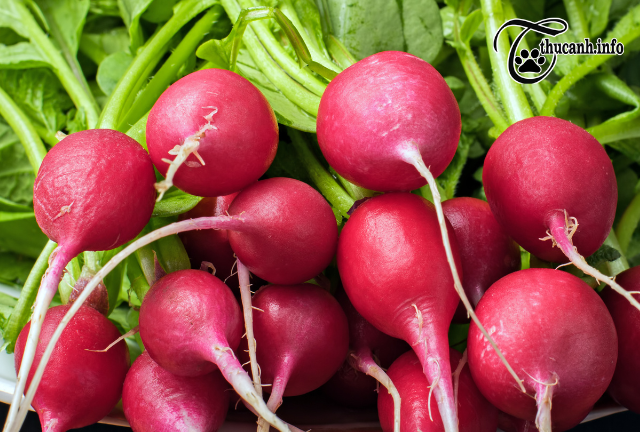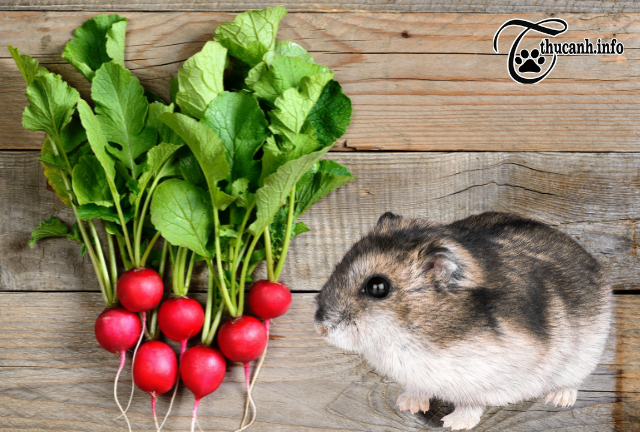Discover the Tasty World of Chard for Hamsters: Can hamsters eat chard safely? Uncover the nutritional benefits and potential risks of introducing chard to your furry friend’s diet. Ensure your hamster’s well-being with expert insights and feeding tips. Read on to find out if chard is the perfect addition to your pet’s menu!
1. Can Hamsters Eat Chard?
Yes, hamsters can eat chard, which is a nutritious leafy green. However, it’s essential to introduce new foods gradually and observe your hamster’s response. Chard can provide essential vitamins and minerals, but not all hamsters may enjoy or tolerate it well. As with any new food, monitor your pet for any signs of discomfort or digestive issues.
Remember to offer chard in small, bite-sized portions to prevent overindulgence. If your hamster shows positive reactions to chard, you can include it as a part of their balanced diet, along with other safe fruits and vegetables. Always prioritize your hamster’s well-being and consult a veterinarian for specific dietary recommendations.

Can Hamsters Safely Munch on Chard? A Nutritional Analysis
2. Understanding the Dietary Needs of Hamsters
Hamsters, as small and active creatures, require a well-balanced diet to support their overall health and energy levels. Their diet primarily consists of high-quality hamster pellets that are formulated to meet their specific nutritional requirements. However, adding fresh foods to their diet can provide essential vitamins, minerals, and fiber that promote their well-being.
2.1 Safe Foods for Hamsters: A Look at Chard
Chard, a nutrient-rich leafy green vegetable, is one of the safe options you can consider for your hamster’s diet. It contains significant amounts of essential nutrients such as vitamin A, vitamin C, and calcium, which contribute to a robust immune system, healthy vision, and strong bones.
When introducing chard to your hamster, it’s essential to do so in small amounts. Some hamsters may enjoy the taste and texture of chard, while others may show little interest. It’s crucial to observe your furry friend’s response to ensure they tolerate and enjoy this new food.
2.2 Observing Your Hamster’s Response to Chard
As you offer chard to your hamster, keep a close eye on their behavior and digestion. Look for signs of excitement or curiosity, as these may indicate that your hamster enjoys the new addition to their diet. However, be vigilant for any signs of discomfort or digestive issues, such as changes in stool consistency or reduced appetite.
Remember, every hamster is unique, and their dietary preferences can vary. While some hamsters may relish chard, others may not find it appealing. If your hamster shows a positive response to chard and tolerates it well, you can incorporate it into their diet as an occasional treat.
Note: In conclusion, chard can be a nutritious and safe addition to your hamster’s diet. By closely observing your pet’s response to chard, you can ensure their dietary preferences and well-being are met. A balanced and varied diet, combined with fresh food treats like chard, will contribute to a happy and healthy life for your beloved hamster. Always prioritize their health and consult with a veterinarian if you have any concerns or questions about their diet.
3. Ensuring a Balanced Diet for Your Hamster
As a responsible hamster owner, it’s essential to provide your furry friend with a well-balanced diet that meets their nutritional needs. While high-quality hamster pellets are the foundation of their diet, incorporating fresh foods can add variety and essential nutrients to their meals. Chard, a nutritious leafy green, is one of the safe options you can consider.

The Chard Debate: Is It Safe for Your Beloved Hamster?
3.1 A Variety of Safe Foods for a Happy Hamster
In addition to chard, there is a wide range of safe fruits and vegetables that can contribute to your hamster’s happiness and well-being. Fruits like apples, bananas, and blueberries can provide essential vitamins and natural sweetness that hamsters adore. Vegetables like carrots, broccoli, and cucumbers offer vital nutrients and fiber that aid in digestion and overall health.
When introducing new foods, including chard, to your hamster’s diet, it’s crucial to do so in small, gradual amounts. Observe their response to each food type to understand their preferences and ensure they tolerate the new additions well.
3.2 Optimal Feeding Practices for Your Hamster
To maintain your hamster’s health, it’s essential to practice optimal feeding habits. Moderation is key when offering fresh foods like chard. While these foods are beneficial, overfeeding can lead to obesity and potential health issues. Offer fresh foods as occasional treats, supplementing their regular diet of high-quality hamster pellets.
Understanding portion sizes and feeding frequency is essential. Small amounts of fresh foods can be given daily, but avoid providing excessive quantities that may lead to selective eating or waste.
Note: In conclusion, providing a balanced diet for your hamster is crucial for their overall health and happiness. Chard is just one of the many safe food options you can offer. By incorporating a variety of fresh fruits and vegetables, and practicing moderation in feeding, you can ensure your hamster enjoys a diverse and nutritious diet that promotes their well-being.
Always be attentive to their response to new foods and consult with a veterinarian if you have any concerns about their diet or behavior. Remember, a healthy diet is the cornerstone of a happy hamster.
4. Can Hamsters Have Chard as Part of Their Regular Diet?
While chard is safe for hamsters to eat, it should not form the sole basis of their regular diet. Hamsters require a balanced and varied diet to thrive, and chard should be considered as an occasional treat or part of a diverse menu. Commercial hamster pellets are designed to provide the necessary nutrients, and fresh fruits, vegetables, and occasional protein sources can be added to supplement their diet.
5. What Other Leaves Can Hamsters Eat? A Leafy Guide

Chard and Hamsters: Understanding the Health Implications
Apart from chard, there are several other leaves that can be included in your hamster’s diet. Always remember to introduce new foods gradually and ensure they have been washed properly. Here are some leafy options suitable for hamsters:
- Spinach: Rich in iron and other essential nutrients, spinach can be a healthy addition to your hamster’s diet. However, it is important not to overfeed spinach due to its high oxalate content, which can potentially lead to urinary issues.
- Kale: Packed with vitamins A, C, and K, kale is a nutritious leafy green suitable for hamsters. Like spinach, it should be fed in moderation to prevent the risk of urinary problems.
- Romaine Lettuce: This lettuce variety offers a hydrating crunch for hamsters and contains beneficial nutrients such as vitamin C and fiber. It is a safer option compared to iceberg lettuce, which has lower nutritional value.
- Carrot Tops: The leafy greens attached to carrots can be an exciting addition toyour hamster’s diet. They provide a good source of fiber and are packed with vitamins and minerals. Just make sure to remove any soil or dirt before feeding them to your furry friend.
- Basil: Hamsters can enjoy the aromatic and flavorful leaves of basil. Not only does it add variety to their diet, but basil also contains antioxidants that promote overall health.
- Coriander/Cilantro: The leaves of coriander (also known as cilantro) are safe for hamsters and offer a refreshing taste. They contain essential nutrients like vitamin K and antioxidants.
- Parsley: Another herb that hamsters can nibble on is parsley. It provides vitamin C, vitamin K, and other beneficial compounds. However, avoid giving excessive amounts due to its high water content.
Remember, when introducing new leaves or vegetables to your hamster, observe their response to ensure they tolerate the food well. Any signs of digestive upset or unusual behavior should prompt a reconsideration of that particular food item.
6. Frequently Asked Questions (FAQs)
Here are some common questions related to hamsters’ consumption of chard and other leafy greens:
6.1 Can hamsters eat chard every day?
No, hamsters should not eat chard every day. Chard should be given in moderation as part of a varied diet to prevent digestive issues.
6.2 Are all types of chard safe for hamsters?
Yes, both Swiss chard and red chard are safe for hamsters to eat. You can choose either variety based on availability.
6.3 Can hamsters eat other types of lettuce?
While romaine lettuce is generally safe for hamsters, iceberg lettuce is not recommended due to its low nutritional value.
6.4 Can hamsters eat chard stalks?
It is best to remove the chard stalks before offering them to your hamster, as they can pose a choking hazard.
6.5 Can hamsters eat chard leaves from the garden?
If you have a home garden and grow chard, ensure that it is free from pesticides or other chemicals before offering it to your hamster.

Exploring Hamster Diets: Including Chard as a Safe Option
7. Consulting a Veterinarian for Expert Advice
As a caring hamster owner, it’s essential to prioritize your pet’s well-being and seek professional guidance when needed. If you have any doubts or concerns about whether hamsters can eat chard or if it’s suitable for your furry companion, consulting a veterinarian is the best course of action.
7.1 When to Seek Professional Guidance
Knowing when to seek professional advice is crucial in ensuring your hamster’s health and happiness. If you notice any unusual behavior, digestive issues, or signs of discomfort after introducing chard or any new food, it’s time to schedule a visit to a veterinarian with expertise in small animal care.
An experienced veterinarian can assess your hamster’s individual health needs and provide personalized guidance on their dietary requirements. They will be able to address any specific health concerns, evaluate the risks and benefits of introducing chard, and recommend suitable alternatives if necessary.
7.2 A Healthy and Happy Hamster with Proper Nutrition
By consulting a veterinarian and ensuring your hamster’s diet aligns with their specific needs, you are taking a significant step toward promoting their overall health and happiness. Providing proper nutrition and a well-balanced diet will not only keep your furry friend physically healthy but also mentally stimulated and content.
Remember that every hamster is unique, and what works for one may not work for another. Your veterinarian can guide you in tailoring your hamster’s diet to suit their preferences, age, and health conditions. With the right nutrition and expert advice, you can have a healthy, happy hamster companion by your side for years to come.
Note: In conclusion, seeking professional guidance from a veterinarian with experience in small pets is essential when it comes to your hamster’s diet. Don’t hesitate to consult an expert if you have any concerns or questions about feeding chard or any other new foods to your pet. A healthy and well-nourished hamster is a happy hamster, and expert advice will help ensure your furry friend thrives.
8. Conclusion
In summary, the article on thucanh.info has answered you “Can Hamsters Eat Chard” hamsters can safely enjoy radishes as part of their diet, whether it’s Swiss chard. or red radish. It is important to provide it in moderation, along with balanced foods suitable for hamsters. Remember to gradually introduce new foods, rinse and observe the hamster’s reaction. By providing a variety of green leafy vegetables, you can contribute to your hamster’s nutrition and overall health. So go ahead and treat your furry friend to some turnips, but always be mindful of their dietary needs. Happy feeding hamster!


